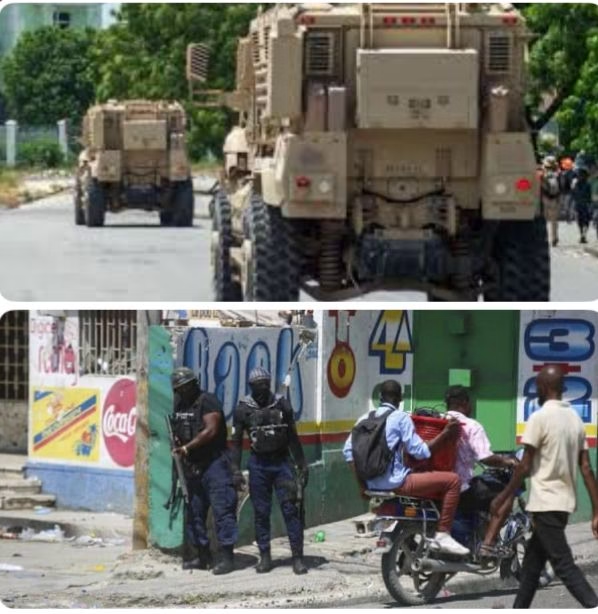Port-au-Prince woke up tense on Thursday, August 7, 2025, as heavy gunfire was reported in several areas of the capital, including Delmas and Kenscoff. The violence unfolded amid a leadership handover at the helm of the Presidential Transition Council (CPT), where Montana Accord representative Fritz Alphonse Jean formally passed the gavel to Laurent Saint-Cyr, the private sector delegate.
Armed gangs, which continue to expand their control in the capital and across the Artibonite and Centre departments, launched coordinated early-morning attacks in multiple zones, including Kenscoff and Delmas. Civilian casualties were reportedly recorded during the assaults.
In a video posted on social media overnight Wednesday into Thursday, Jimmy Chérizier—alias “Barbecue”—the spokesperson for the “Viv Ansanm” criminal coalition, announced planned attacks on the Villa d’Accueil and the Prime Minister’s Office, which house the two branches of the executive. He called on residents of Delmas 32, 40B, and 48 to stand down and support the gangs in their effort to oust the current transitional authorities.
As panic spread through neighborhoods such as Delmas 19, 31, 32, and 40B, members of the Viv Ansanm coalition escalated their operations in Kenscoff, where three Kenyan police officers serving with the Multinational Security Support Mission (MMAS) were injured, and two armored personnel carriers belonging to the mission were set on fire.
In a statement, MMAS officials confirmed that three of their personnel sustained minor injuries and reported the destruction of two armored vehicles during a rapid deployment in response to distress calls from residents of Kenscoff, a mountainous commune overlooking the capital. According to the mission, the vehicles were trapped in trenches dug by gang members and could not be recovered despite significant efforts.
The mission also reported that several gang members were seriously wounded during the intervention by security forces.
Linking the attacks to the political transition underway at the CPT, the MMAS reaffirmed its commitment to supporting the Haitian National Police (PNH) in preventing criminal groups from further destabilizing the country or blocking ongoing efforts toward sustainable governance. “Targeted operations will continue until gang leaders are captured or surrender to face justice,” the statement read.
Political Crisis and Security Vacuum
This latest surge in violence coincides with growing tensions within the Presidential Transition Council, which is tasked with leading the country through February 5, 2026. The internal crisis is driven by deep divisions among council members, recent changes in leadership, and—most notably—a lack of tangible progress, prompting several national stakeholders to demand the immediate resignation of the current transitional authorities.
“Without clear political unity, it’s impossible to coordinate an effective security response,” said one diplomat, speaking anonymously. “The gangs are taking full advantage of the vacuum to strengthen their grip.”
As Haiti sinks deeper into chaos, one fundamental question remains: Who will step in to break this cycle of violence?







